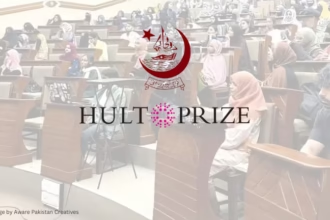It was 1991—a moment of jubilation and self-confidence swept through the West. The mighty USSR, which had stood toe-to-toe with the West for nearly four decades, had crumbled, marking the definitive end of the Cold War. This victory was not just geopolitical but ideological: liberal democracy and capitalism had triumphed over the far-left communist experiment. The world embarked on a transformative journey where liberalism, intertwined with globalism, promised unprecedented connectivity and progress.
With rapid change becoming the norm, economic liberalism paradoxically evolved into a conservative ideology, while cultural liberalism took on an ever-expanding, fluid form. Yet, as Karl Marx had predicted long before, “All that is solid melts into air.” The velocity of these transformations left cultures and traditional structures struggling to maintain their footing in an increasingly volatile landscape. Decades later, many would look back in disbelief, questioning how the ideals that declared their ultimate victory began to unravel so quickly.
The Global South at Crossroads
The developing world—the so-called Global South—was not fully prepared for the liberal march. Globalization was injected into these economies with an almost utopian belief that a free and unregulated market would naturally lead to prosperity. While liberalism had vanquished two major adversaries—fascism and communism—it underestimated the enduring influence of deeply rooted forces such as nationalism, religious identity, and cultural traditions.
This oversight created an existential crisis at multiple levels. The Global South grappled with socio-economic dislocation, while the Global North faced cultural fragmentation and discontent. The rapid dismantling of traditional identities, coupled with the economic devastation of the 2007-08 financial crisis, immigration concerns, and fears of eroding cultural heritage, sowed the seeds of disillusionment. Liberalism, once the banner of progress, now seemed unable to address these contradictions in the short term.
The Return of the “Particularist” Ideologies
The ideological vacuum left in the wake of liberalism’s challenges was soon occupied by movements that had once been sidelined by the forces of universalist ideologies—namely, nationalism, religious fundamentalism, and patriotism. Noam Chomsky, in 2020, labeled this shift as the rise of the “Reactionary International,” pointing to leaders like Donald Trump, Narendra Modi, and others who capitalized on this ideological crisis.
The financial collapse of 2008 played a pivotal role in shaking public confidence in unregulated capitalism. While the West grappled with economic stagnation and cultural anxieties, the Global South witnessed its own struggle with governance, corruption, and economic dependency. In both hemispheres, right-wing populists offered a compelling—albeit simplistic—narrative: reclaim lost identity, secure borders, and restore economic sovereignty. The global liberal order, once thought to be the “End of History,” now faced a potent backlash.
A Fractured Future?
As the world continues to evolve, unfettered capitalism has led to crises that right-wing populists have skillfully exploit. The potential re-election of Trump in a country once seen as the vanguard of liberal democracy should not come as a shock, given the global pattern of events. Nor should the rise of nationalist movements across Europe, Asia, and Latin America.
Can a single ideological framework navigate the complexities of the modern world? Given the multidimensional nature of today’s challenges—economic instability, identity crises, climate change, and digital transformation—it seems increasingly unlikely. The space left by liberalism’s faltering grasp is now fertile ground for reactionary movements. Whether liberal values can adapt and reclaim their influence remains an open question.
